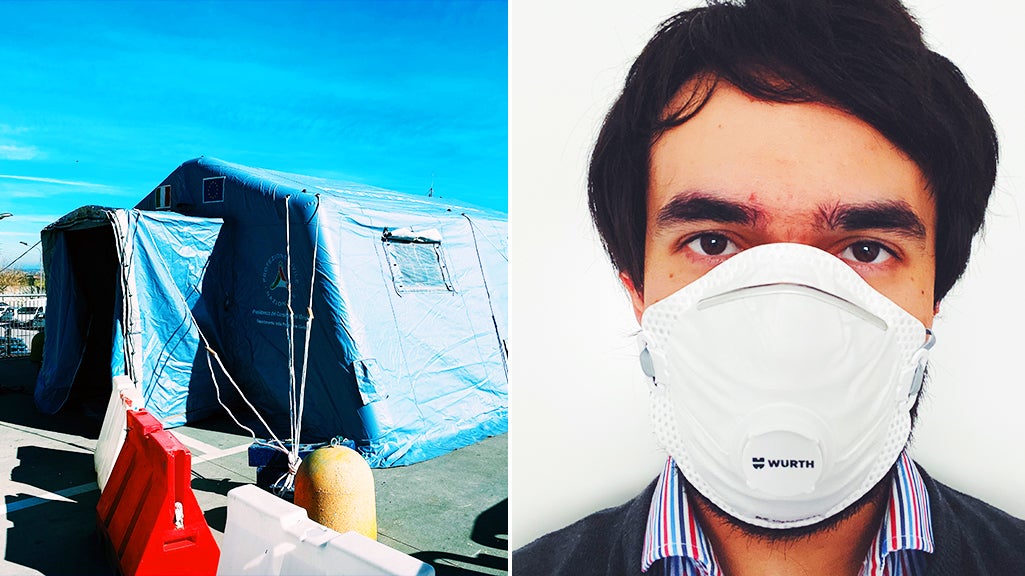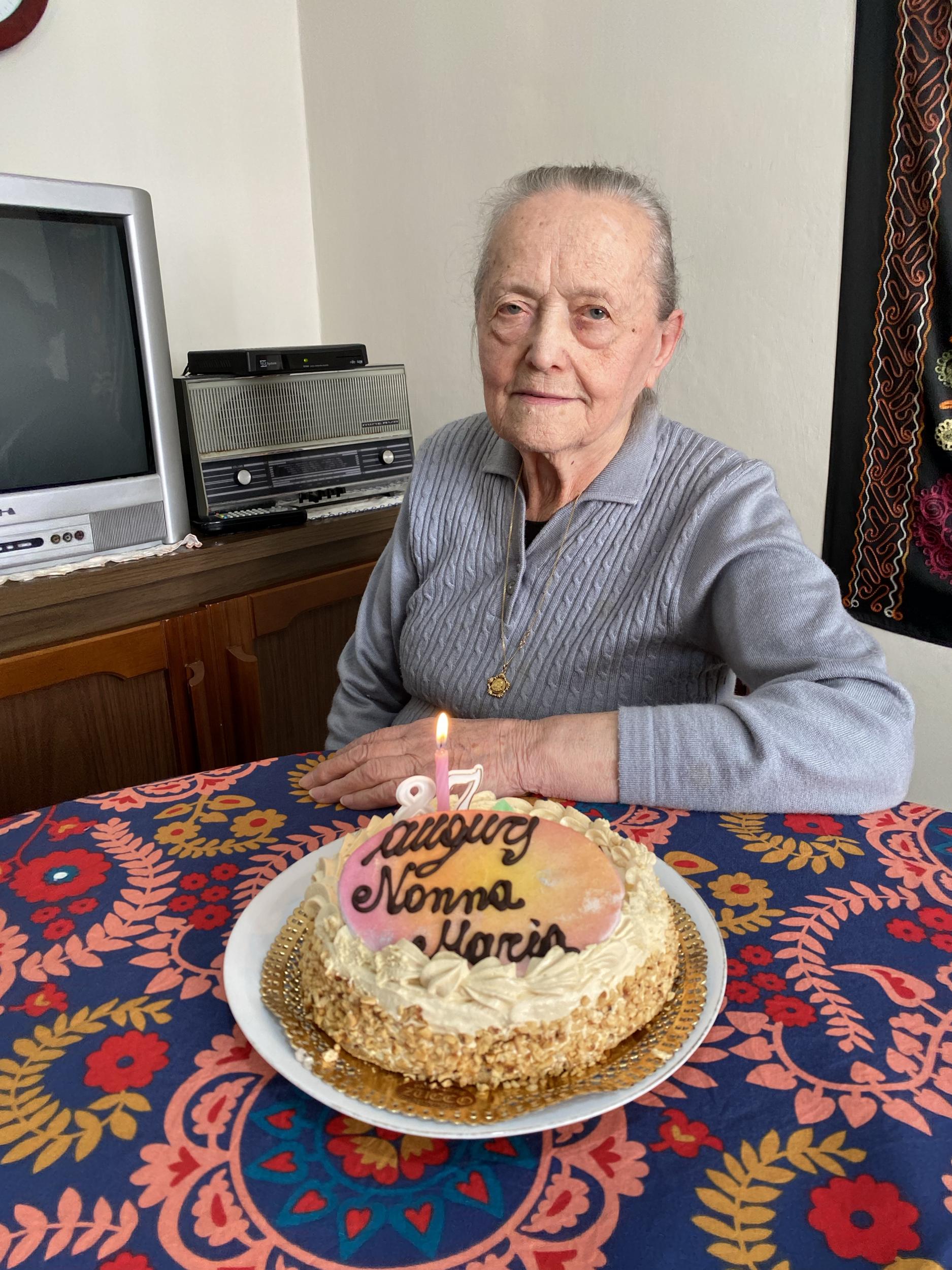Italy has just been put under total lockdown – here’s what it was like for me on the coronavirus frontline
As my country enters a month of complete confinement and xenophobia escalates, I can’t help but worry about my family

Your support helps us to tell the story
From reproductive rights to climate change to Big Tech, The Independent is on the ground when the story is developing. Whether it's investigating the financials of Elon Musk's pro-Trump PAC or producing our latest documentary, 'The A Word', which shines a light on the American women fighting for reproductive rights, we know how important it is to parse out the facts from the messaging.
At such a critical moment in US history, we need reporters on the ground. Your donation allows us to keep sending journalists to speak to both sides of the story.
The Independent is trusted by Americans across the entire political spectrum. And unlike many other quality news outlets, we choose not to lock Americans out of our reporting and analysis with paywalls. We believe quality journalism should be available to everyone, paid for by those who can afford it.
Your support makes all the difference.The official announcement by Giuseppe Conte, the Italian prime minister, sent shock waves across Europe last night: All of Italy was going to be put under lockdown. From my isolation in the UK, I felt like the situation had reached a completely new level of surreality.
I started producing video packages for ITN on the new virus out of China in December, when most people would have been oblivious to the story and the idea of the epidemic spreading to Europe was still very remote. I clearly remember that the last thing I did before jumping on a plane back home to Italy at the end of February was talking to one of my sources in Wuhan, an Irish citizen living in the quarantined Chinese city.
When I landed in Turin everything looked normal, until I stopped at an unusual queue before the airport border control. Then I saw them: three people in bright orange hazmat suits were screening passengers. All of those hours of footage I had seen from China suddenly flashed through my mind. I was caught by surprise, and so were the British family just ahead of me in the queue: “What’s that all about?”
The first two airport operators took my temperature, then a third one snapped a picture of me with a tablet used as a termoscanner. “That’s not too bad,” I thought. Little did I know of what was lying ahead.
The news had just broken that 11 towns across the northern regions of Lombardy and Veneto had been placed under quarantine, with travel restrictions “modelled” on those adopted in Wuhan. Limitations to public life were also imposed in neighbouring regions like Piedmont, where I was. Major events such as carnival parades were cancelled, and it wasn’t too long before schools, universities and museums were also shut down.
In just under two days from my return to my hometown of Mondovì, I unexpectedly found myself on the coronavirus frontline, at about two hours’ drive from the epicentre of the outbreak in Codogno.
I thought I had no choice but to try and do my best to report on the story, as people were already panicking and misinformation was spreading on social media much faster than the virus itself. Through a friend at the hospital, I got myself a decent protective mask, then drove to see the emergency tents erected overnight outside A&Es across northern Italy. Similar to those deployed by the Italian Civil Protection to fight Ebola in Africa, they are specifically designed to contain the contagion. I was allowed inside one of them: I was shown a single hospital bed, a vital signs monitor and other essential medical equipment. Was it going to be enough?

I subsequently took several trips to a handful of supermarkets and probably every pharmacy in town: all of them had run out of masks, Amuchina (a popular hand sanitiser) and even some essential products like pasta, as people started stockpiling in fear.
Another sad effect of the virus was that some individuals started using it to justify racist comments and xenophobic behaviour. Anyone even remotely “Asian-looking” was now treated with suspicion, something that I experienced quite directly, coming from a mixed ethnic background. And I’ll have to confess that I was really worrying about my mother, a Filipino-naturalised-Italian citizen who has been living in the country for over 30 years.
I was also very concerned about my Italian grandmother, who was turning 87 that week. My uncle (a retired military police officer) decided not to attend her birthday celebrations after he developed flu symptoms. I remember feeling helpless after saying goodbye to her a few hours before my flight back to London. Now, no matter what happens, I won’t be able to visit my family until at least 3 April, as Italy enters a month of complete lockdown and flights to and from the country have been cancelled.

The plane back was unsurprisingly half empty. Everything went really smoothly, and after touch down I was in and out of Gatwick airport in less than 20 minutes. No health checks at the border, no questions asked.
Since then, working from home to avoid contact with my colleagues has been a very lonely experience. Although there is no official isolation required in my case and in the absence of symptoms, I understand and respect these precautionary measures.
Meanwhile, I’ve been dealing with a bit of stigma, as some people seem to be avoiding me because “he must have got it”. But other than that, it’s been ok. I go and say hi to the goats in Clissold Park every day. In the absence of humans, they’ve become my best lunchtime friends.
Gianluca Avagnina is a news producer for ITN

Join our commenting forum
Join thought-provoking conversations, follow other Independent readers and see their replies
Comments